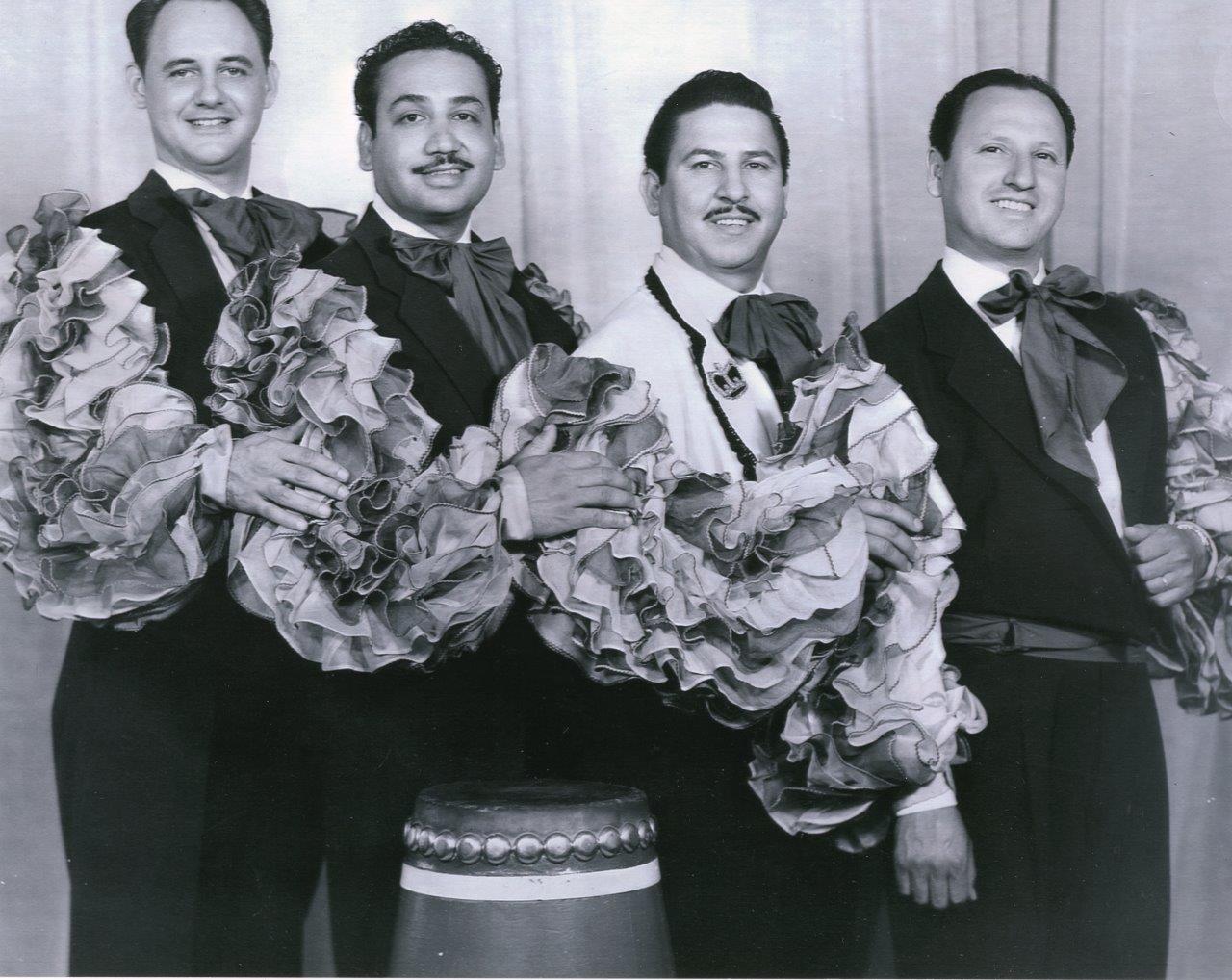Dallas’ Latino Cultural Center’s Música! Our Rhythm, Our Heart, Our Soul– A soundtrack to the Mexican-American experience in Dallas, a music history exhibition, is now on through October 5th. Banda de Brujos helped usher in the show Friday night.
For the past five years, the Dallas Mexican American Historical League, which preserves and documents Mexican-American cultural heritage in North Texas, has partnered with the Latino Cultural Center for a major exhibition during Hispanic Heritage Month. Their current collection explores musical contributions by Mexican-Americans to North Texas.
“We are all children of immigrants,” President Juanita Nañez says, summing up the organization’s mission.
“Our parents came over en masse during the early 1900s, fleeing from the turmoils of the Mexican revolution.”
Board member Albert Valtierra adds, authoritatively: “If we don’t tell our story, nobody else will.”
The visual portion of the exhibition spans one hundred musical years, featuring photographs of traditional Mexican instrumentalists alongside neo-psychedelic rock musicians. It was curated by artist Scott Tucker, who fronts rock group The Orange and owns the newly-opened Inner Space Gallery in Duncanville. Tucker says the project spoke to him personally as a striving musician: “I tried to show people who played their whole lives, no matter what happened,” he says, describing the task of narrowing down 400 photographs to an easily digestible 130. Subjects include Sam “the Sham” and the Pharaohs, and Abraham Quintanilla of The Dinos, best known as Selena’s father.
One section is dedicated to Trini Lopez, who will be sharing 80 years of collected wisdom by participating in a panel September 23rd. Lopez, who became a ’60s music and film icon with songs like “Lemon Tree,” was born in Dallas and grew up in the area known as Little Mexico, then a spicy haven of Mexican food and music, now populated by craft-cocktail bars in a sparkling Uptown. On display are mementos of the timeline of Lopez’ success, from early shows at the State Fair, to the cozy company of Frank Sinatra and Princess Grace Kelly.
An affecting photograph in the collection dates from 1915 and shows a group of coal miners in Malakoff in East Texas, most of them children, posing with their musical instruments. One of the suited-up children in the photo was Marcelino Marceleno, Tucker’s own maternal great-grandfather, (“They gave him the same first and last name,” Tucker clarifies, with a laugh) who went on to become a popular orchestra bandleader. Tucker surmises the instruments were given to the mine workers’ children as part of a shiny incentive package payment, to play at weekend dances and thrive along with their community. Through this project, Tucker combed through the branches of his own family tree, unraveling the discovery that Marceleno was the son of a vigilante who battled the Texas Rangers.
Música! documents oppression, too, by depicting, for example, the rich Mexican culture simmering in bygone dance halls, which opened as a result of inhospitable 20th-century segregation. The plight of the Hispanic community is frequently omitted from the chronicles of segregation and civil rights, as rules were particularly hazy when it came to Mexican-Americans and other Latinos, alternately perceived as belonging to one side or the other of the black-and-white spectrum. Nañez says that while Mexican-Americans were often shunned as “colored,” ultimately “it depended on how dark you were.”
The showing fittingly comes on the heels of President Trump’s decision to rescind the Deferred Action for Childhood Arrivals (DACA) program, an immigration policy allowing minor children of undocumented immigrants to receive deferred action from deportation. Pending a congressional ruling which threatens to crush the dreams of approximately 800,000 Dreamers, or DACA beneficiaries, and their families, the nation hangs on the edge of doubt of whether we’ll honor the pledge to safeguard our young.
Tucker finds the collection particularly relevant in light of DACA, and notes the importance of remembering Mexican-American contributions not only in music and culture, but appeals to pragmatists by pointing to the betterment of the economy brought on by immigrant residents.
“Look at Cesar Chavez, and migrant workers who did a lot for the U.S economy, especially in the Southwest,” Tucker says. “If you go back 200 years, to New York and Staten Island, people hated the Irish,” Tucker continues, “as time moves, certain prejudices and racism usually move into the minority.” Tucker says, “If you’re a person who’s gonna contribute to society, you will be a person who’ll contribute — if you’re a person who’s gonna take from society, you’ll be a taker, no matter your skin color.”
Videographer Tim Perry interviewed 25 North Texas musicians, who described their anecdotes and experiences in the industry, for a documentary also called Música! that screened at the opening Friday. The exhibition, like the non-profit led by Nañez, aims to relate a non-political narrative, denoting a sense of celebratory documentation. Perry, whose documentary is in line with that tone, says that interviewed subjects included the families of radio promoters who started KNON, and a range of musicians from Texano, Mariachi to Free-Jazz.
“The piece is more of a celebration of these artists, we were getting a visual and verbal archive of those histories,” Perry says, “It was really quite outstanding, like a parallel universe in a way.”
“I feel very humbled and privileged to be able to curate a show like this,” Tucker states, reflecting on the full-circle generational portrait spilling beyond the corners of his ancestor’s photograph, “My great-grandfather was working in a coal mine and a hundred years later his great-grandson is a college-educated person who owns an art gallery and curates shows honoring people like him.” He pauses.
“In the same city.”
Música, Our Rhythm, Our Heart, Our Soul runs from September 8th through October 5th, and is free to attend.






